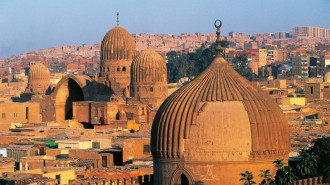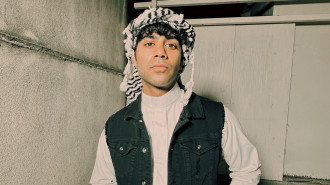Assassination campaign targets intellectuals and human rights defenders as violence across Afghanistan escalates
She and her colleague Zakia Herwari, both Supreme Court judges, were killed on January 17 in a targeted attack in Afghan capital Kabul that spoke of another level of hatred; they were shot at close range as they sat in the back of a car on their way to work. Yasini had tried in vain to shield herself from the spray of bullets with her handbag.
"When we found out I didn't have anything to say. I just sat down and cried. There was nothing else I could do," says her youngest son Abdulwali, aged 17.
The women's murders are among a recently intensified wave of attacks; 65 journalists, media professionals and human rights defenders were killed in Afghanistan between 1 January 2018 and 31 January 2021, according to a report published by the United Nations Assistance Mission in Afghanistan (UNAMA) last month (February). Of that number, 11 lost their lives since the start of peace negotiations last September.
"At a time when dialogue and an end to the conflict through talks and political settlement should be the focus, the voices from human rights and the media need to be heard more than ever before, instead they are being silenced," said Deborah Lyons, special representative of the UN secretary-general for Afghanistan.
 |
Yasini had tried in vain to shield herself from the spray of bullets with her handbag |  |
Civilian casualties in Afghanistan have risen sharply since peace negotiations began in September last year, despite total deaths and injuries throughout 2020 dropping by 15 percent compared to 2019, according to a UN human rights report also published last month.
They totalled 8,820 last year – the first time that figure has fallen below 10,000 since 2013. Of that number, 3,035 were killed and 5,785 others injured.
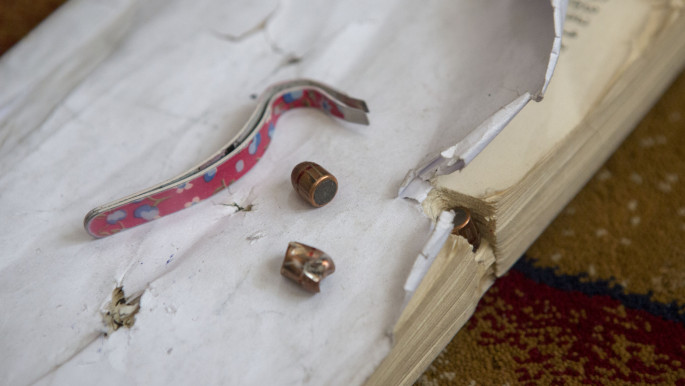 |
|
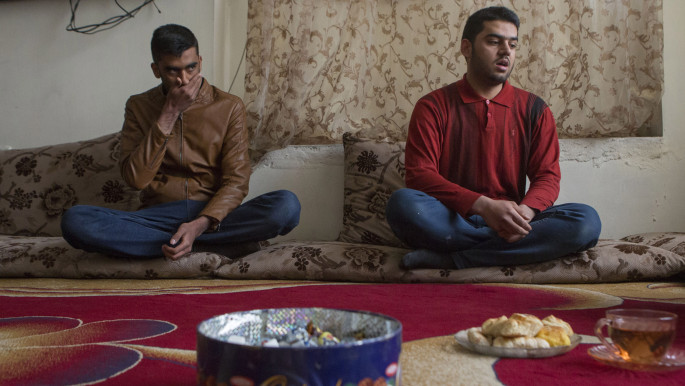 |
|
| Kadria Yasini's sons say she was a woman who believed passionately in gender equality, education and peace [Rick Findler] |
Ms Yasini was advised by government officials to carry a gun for her protection, says Abdulwali.
"My mother rejected the idea because she said she didn't have any enemies. A gun is something that takes lives, she said. Having a gun wouldn't have saved her from this ambush anyway."
She was a woman who believed passionately in gender equality, education and peace, say both of her sons.
"After carrying out the attack, the gunmen shouted out 'Allahu Akbar' which clearly shows extremist ideology was behind [the women's] murder," says older brother, Abdullwahad who is 19.
"She believed the world was beautiful and that you should be positive. Why would someone in this world do such a thing. We now feel so very alone."
Afghanistan's vice president Amrullah Saleh said the country had been shaken by the women's killing.
"The aim of these targeted attacks is simple, yet strategic: to humiliate the government and to target the strata of society — civil society, the media, and women — that the Taliban see as an obstacle to their return," he told The Times.
 |
The absence of claims of responsibility has added to a climate of fear among the population |  |
Tweeting in response to the shooting of surgeon, civil society activist and media advocate Khalil Narmgo last month in the Baghlan-e-Markazi district, Saleh said: "It must stop. And stop now. The Taliban team in Doha know exactly who the perpetrators are. They should be pressured to allow investigation. Villagers have witnessed this cruel and barbaric act. Many dozen are ready to give testimony."
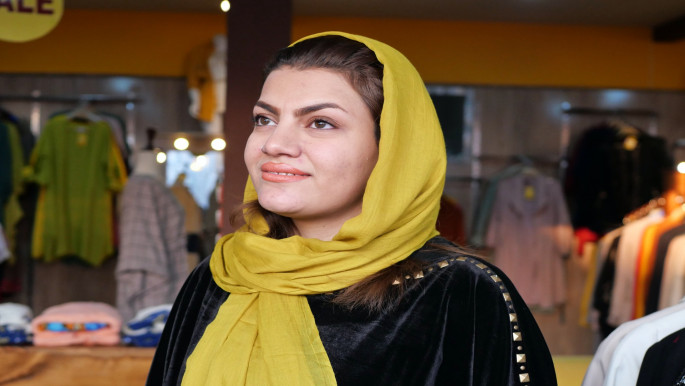 |
|
| Read also: A Covid catastrophe: Afghanistan's female entrepreneurs face a huge battle to survive the pandemic |
The European Union condemned targeted attacks on media workers, journalists, and women in Afghanistan, following the assassination of three women journalists in Jalalabad on March 3.
The Islamic State group (IS) took responsibility for the attack but much of the violence is unclaimed. The Afghan government frequently lays blame on the Taliban but the group frequently denies these allegations. Just days later, a female doctor was killed by a magnetic bomb that had been attached to the vehicle she was travelling in.
"The Taliban remain responsible for the majority of civilian casualties and targeted assassinations, either directly or by opposing a ceasefire. Targeting journalists must stop. Targeting women must stop. The violence in Afghanistan must stop," the EU said in a statement.
The absence of claims of responsibility has added to a climate of fear among the population.
Enikass Radio and Television, the broadcaster where the three murdered journalists were employed, has decided not to hire any more women because it cannot guarantee their safety. It blames the lack of security on the government.
The power-sharing talks have made slow progress and hopes are dwindling of a peace deal being signed before the May 1 departure date of remaining US troops. There are very real concerns over the threat of civil war.
Former chairperson of the Afghanistan Independent Human Rights Commission (AIHRC) says hard-won achievements are at risk of being lost.
 |
We are forced to self-censor to be safe. There are restrictions on freedom of expression and freedoms of media, and many people are trying to leave the country |  |
"We are forced to self-censor to be safe. There are restrictions on freedom of expression and freedoms of media, and many people are trying to leave the country. Once again we will face a brain drain from Afghanistan, which [leaves a gap] to be filled by Taliban and their ideology," says Samar.
"They want to break the resistances in the country and eliminate the oppositions to their mentality. The environment will be conducive to their way of governance so no one can talk about human rights, accountability and justice."
Spokesperson for AIHRC Zabiullah Farhang describes the upsurge in attacks as very alarming, adding that women journalists are choosing to leave their jobs because of the threats against them – something he says is very understandable.
Farhang says the biggest concern is not knowing who the perpetrators are.
"If the Taliban are not behind the attacks, we call on both sides of the peace talks – the Taliban and the Afghan government – to set up a joint committee in order to investigate and to transfer information to find out who is carrying out these attacks," he says.
"We've yet to receive a positive response from either side on this."
Charlie Faulkner is a freelance journalist based in Afghanistan. She has previously lived and reported from Turkey and Jordan. Her work focuses on migration, economics, conflict, human rights, gender issues and culture.
Follow her on Twitter: @Charlie_Faulk
Rick Findler is an independent photojournalist based in London, UK. A keen interest in global news and social issues has seen him travel to countries such as Syria, Iraq, Somalia and Afghanistan to name a few. Whilst in England Rick works regularly with The Sunday Times as well as other major national publications. He is also invited into companies and schools across the country as a keynote speaker to talk about fear management and working in high stress environments.

![Palestinians mourned the victims of an Israeli strike on Deir al-Balah [Getty]](/sites/default/files/styles/image_684x385/public/2024-11/GettyImages-2182362043.jpg?h=199d8c1f&itok=xSHZFbmc)


![The law could be enforced against teachers without prior notice [Getty]](/sites/default/files/styles/image_684x385/public/2178740715.jpeg?h=a5f2f23a&itok=hnqrCS4x)
 Follow the Middle East's top stories in English at The New Arab on Google News
Follow the Middle East's top stories in English at The New Arab on Google News
